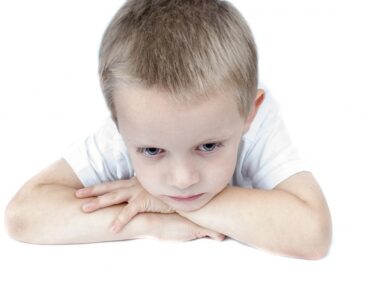While most of the world’s parents understand the importance of sexual education for children, very few of them understand the complex issues surrounding sexuality and the effect it has on developing sexually healthy kids. There is a lot of misinformation about sexuality that clouds the realities about healthy sex.
We all know that a happy, healthy sexual life can be the key to happiness in a child as well as the key to success in adulthood. However, too often, we’ve come to think that sex is about being able to please oneself at the cost of the child’s well-being. There are complexities behind sexuality, and these complexities need to be addressed if we’re going to raise sexually healthy kids.
One of the biggest complexities of sexuality is that there is often a lot of confusion about what it really is.
When we use the word “sex” to describe something that goes on between two people in a relationship, we’re usually referring to the act itself. But in truth, there is much more to sexuality than just the act.
Understanding this requires an understanding of the complex issues of sexuality and how they relate to childhood development.
There are many stages of sexual development, each with their own set of rules and effects. The first stage, puberty, is a period of intense physical and emotional changes. This is the time when the body goes from being a child to a teenager.
Puberty is a particularly important period for young people, because during this time, they are likely to be exploring their own bodies and making the decisions that will shape their future. While everyone experiences puberty in different ways, there are some common themes that run through every teenager’s experience.
Puberty can seem like a terrible time, but there are certain things that you can do as a parent to help your child get through it in a healthy way. During puberty, your child may begin to display signs of sexual interest in other people, such as their own classmates.
If your child approaches another teenager and tries to talk about sex, this is a good sign. Encourage your child to discuss his or her feelings without reacting emotionally. Try to keep discussions about sex at a mature level and avoid talking about masturbation.
As your child grows, he or she will be exploring areas of his or her life that were not part of your awareness before. This is also a period of change. A child’s thoughts and feelings are constantly changing, and this can lead to confusion.
You can help by encouraging your child’s openness with you. Talk to your child about his or her thoughts and feelings; even if you do not think they are right then, being open and discussing them is a great way to help your child learn more about himself or herself.
Beyond puberty, children are beginning to realize their bodies are changing. They are interested in their own bodies and are ready to take control of their own sexual development. It is at this point that a parent’s role in this stage of development really becomes critical.
Sexual education during childhood is important because it gives children the information and support they need to make informed decisions about their bodies and their future. However, if your child is already too old to receive this type of education, then you need to have him or her attend a sex counseling program. Online resources are available for you to find a counselor in your area.
At the end of puberty, children realize they have the knowledge, self-confidence and emotional makeup to move forward with self-empowerment.
This transition marks the beginning of the drive toward sexual exploration. Unfortunately, many children experience trauma during this time in their lives because of harassment at home or from peers. Some even become victims of sexual abuse. This can lead to issues such as depression and other psychological disorders.
The best way to help your child through the confusing changes of adolescence is to remain supportive and attentive. Talk with your child; encourage him or her to explore his or her sexual identity. Be honest about his or her own feelings, and be supportive of him or her as he or she takes those first steps toward exploring his or her sexuality.
Sexual education in schools has been pushed aside in favor of “tough love” approaches that focus on punishment rather than changing behaviors. However, this approach does not teach children what they truly need to do to make safe choices when it comes to sex and love.
Taking a holistic approach that includes psychological, emotional, educational and religious support can help your child tremendously as he or she begins the long journey toward establishing and maintaining healthy relationships throughout life.






